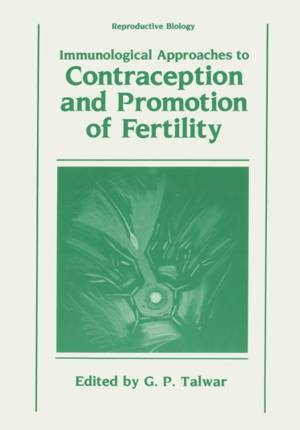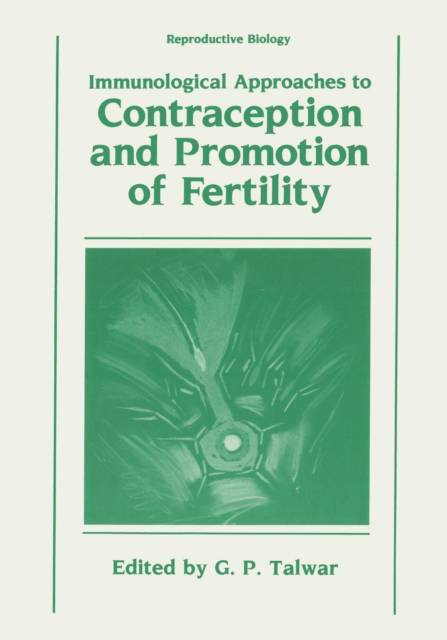
- Afhalen na 1 uur in een winkel met voorraad
- Gratis thuislevering in België vanaf € 30
- Ruim aanbod met 7 miljoen producten
- Afhalen na 1 uur in een winkel met voorraad
- Gratis thuislevering in België vanaf € 30
- Ruim aanbod met 7 miljoen producten
Zoeken
Immunological Approaches to Contraception and Promotion of Fertility
€ 128,95
+ 257 punten
Omschrijving
Contraceptive research has entered the new age of vaccines. Realistic prospects exist for the development of an entirely new battery of vaccines for use in human and veterinary medicine. Among them may be anti-fertility vaccines, based on physiological mechanisms applicable to either the female or male. This volume is a comprehensive review - a status report - of the subjects including fundamental work on the search for useful epitopes and ranging to applied vaccinology. One vaccine to prevent pregnancy, for use by women, has already been studied extensively. G.P. Talwar, the volume's editor and his colleagues in New Oelhi, India, published in 1976 a landmark series of papers describing the immunological properties of a preparation consisting of the alum-precipitated beta-subunit of human chorionic gonadotropin (hCG) chemically linked to tetanus toxoid. The principle of enhancing antigenicity of a self-protein by linkage of the epitope to a carrier protein was employed and tested clinically. These trials, carried out under the auspices of the Indian Council for Medical Research, were the first application of the carrier protein concept for a vaccine for human use. The encouraging results stimulated a wave of research not only on the use of hCG-based vaccines, but on other antigens as well.
Specificaties
Betrokkenen
- Uitgeverij:
Inhoud
- Aantal bladzijden:
- 442
- Taal:
- Engels
- Reeks:
Eigenschappen
- Productcode (EAN):
- 9781468451429
- Verschijningsdatum:
- 25/11/2012
- Uitvoering:
- Paperback
- Formaat:
- Trade paperback (VS)
- Afmetingen:
- 178 mm x 254 mm
- Gewicht:
- 775 g

Alleen bij Standaard Boekhandel
+ 257 punten op je klantenkaart van Standaard Boekhandel
Beoordelingen
We publiceren alleen reviews die voldoen aan de voorwaarden voor reviews. Bekijk onze voorwaarden voor reviews.










